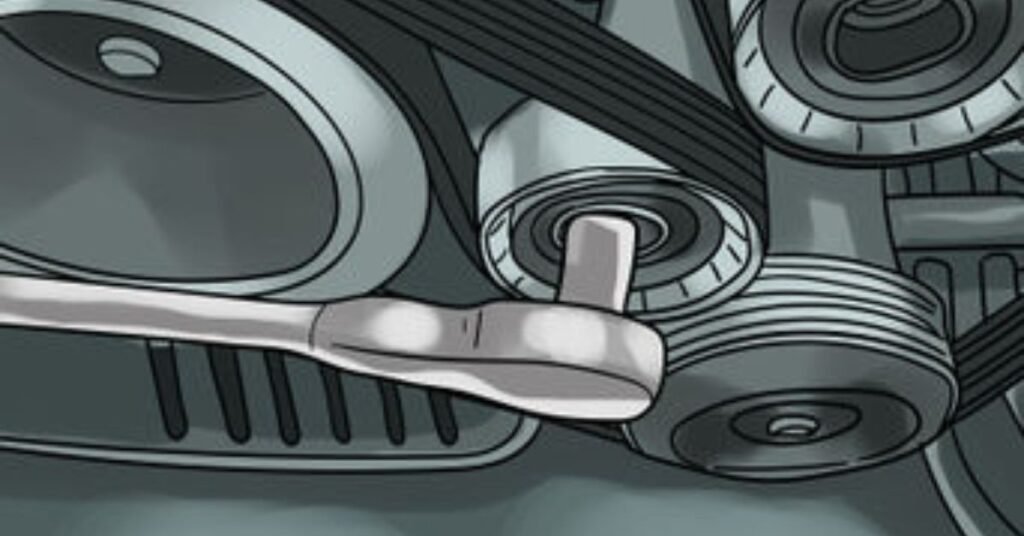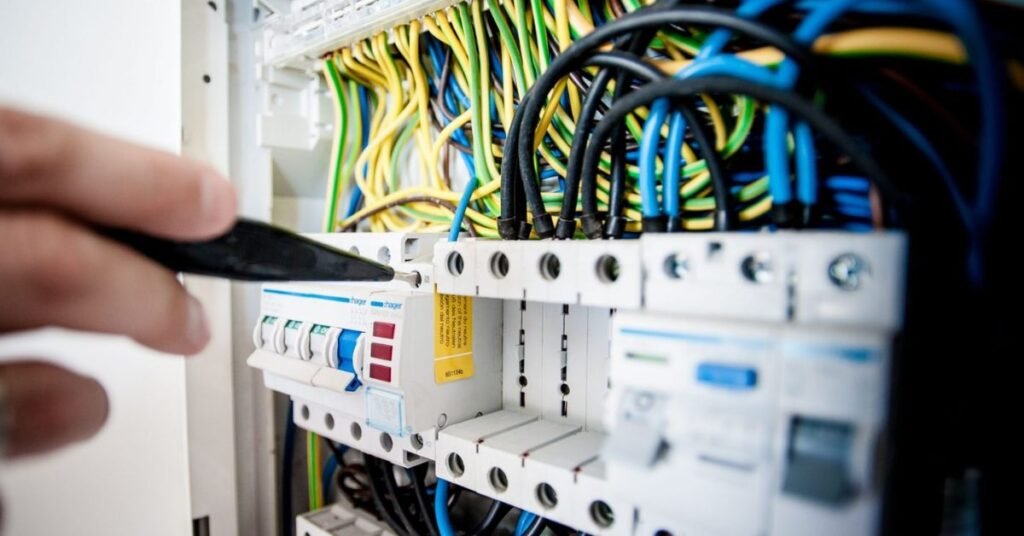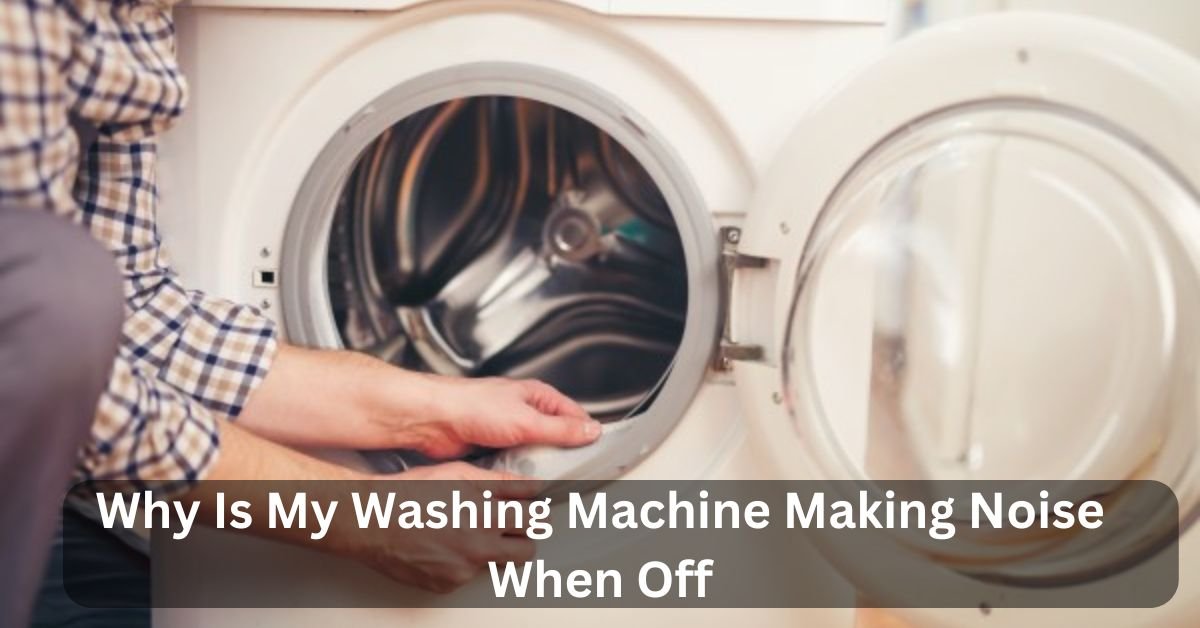A modern convenience we frequently overlook until something goes wrong is a washing machine. One additional perplexing issue is why your clothes washer makes a noiseeven when it’s off.
You may still hear a strange noise even when your washing machine is turned off. This unforeseen commotion can demonstrate a few expected issues, going from innocuous to requiring proficient consideration.
In this article, we’ll examine the most common causes of these enigmatic noises, explain how to determine what’s wrong, and suggest ways to fix it.
Common Types of Noises:
Your clothes washer is a mind-boggling machine that can deliver various commotions, possibly showing an alternate issue. Understanding these sounds can help you analyze and resolve issues before they arise. Here are a few normal sorts of noise and what they could mean:
1. Banging or Pounding Cause:
That frequently occurs assuming the Heap is unequal. On one side of the drum, large objects may clump together. Stop the cycle, rearrange the Heap equally, and restart the machine. Make certain that the washer is level.
2. Clicking or Rattling Cause:
Free items, like coins or fastens, can get caught in the drum or siphon.Check the drum for foreign objects and remove them. If the noise persists, check the pump for debris that has become entangled.
3. Crushing or Shaking Cause:
A worn direction, a free drum, or a weak siphon can cause this. Lubrication or a new set of bearings might be needed. Adjust any loose connections. If the siphon is the issue, it might need to be supplanted.
4. Screeching or squeaking Cause:
A high-pitched squeal could be caused by a worn or loose belt or by failing drum bearings. Inspect the belt before replacing it. If the problem is with the bearings, professional replacement is necessary.
Potential Causes:
1. Load Unbalanced:

When weighty things cluster together on one side of the drum, it can cause banging or pounding commotions during the twisted cycle.
2. Unfamiliar Items:
Free coins or fastens can get caught in the drum or siphon, prompting clicking or clattering sounds.
3. Worn Parts:
Crushing or shaking commotions might demonstrate a worn heading, a free drum, or a faltering siphon.
4. Belt Issues:
A well-used or free belt could cause a sharp screeching, while a humming or murmuring noise could indicate an electrical issue with the engine or siphon.
5. Waste Issues:
When the machine is off, gurgling or draining sounds could indicate problems with the pump or a clogged drain hose. 6. Water Caught: If water stays caught in the drum or external tub after a cycle, sloshing commotions might occur.
Also Read: What Happens If You Microwave Alcohol?-Complete Guide
Investigating Steps:
1. Stop the Machine:
If you notice uncommon noise, quickly stop the clothes washer to forestall further harm.
2. Take a look at the Heap:
Ensure that the load is evenly distributed throughout the drum. If necessary, revise the process to equally disperse the weight.
3. Assess for Unfamiliar Articles:
A glimpse inside the drum and siphon for any free things, such as coins, buttons, or small articles of clothing, may be causing the noise.
4. Assess Belts and Parts:

Take a good look at the belts for mileage and fix any free parts. If you think worn bearings or other problems are inside, you should talk to a professional technician.
5. Review Hoses and Seepage:
Check the channel hose for blockages or crimps obstructing the water stream. Ensure the hose is appropriately connected and free of obstacles.
6. Run a Test Cycle:
If the commotion continues, run a short test cycle with no clothing to notice, assuming the issue continues. Note any particular phases of the cycle where the noise occurs.
7. Counsel the Client Manual:
Allude to the producer’s directions for investigating tips intended for your clothes washer model. The manual may likewise give data on mistake codes and their implications.
8. Level the Equipment:
Guarantee the clothes washer is level and stable on the floor. Change the evening out feet to limit vibrations and noise during activity if necessary.
9. Perform routine upkeep:
To forestall future issues, routinely perfect the channel, assess hoses for wear or harm, and keep the drum liberated from flotsam and jetsam.
10. Look for Proficient Assistance:
If you can’t distinguish or determine the issue alone, it’s prudent to contact a certified specialist or machine repair administration for additional diagnosis and repair.
Also Read: Do Truck Stops Have Microwaves?-Complete Guide to Find Easily
When to Call an Expert:
It is essential to know when to call a professional for washing machine issues to ensure safety and prevent further damage. The following are some indications that you should get professional assistance:
1. Continuous Noise:
If your clothes washer keeps making surprising noise, regardless of your endeavours to investigate and determine the issue, calling a professional is ideal. Disregarding diligent commotions can prompt more huge harm and exorbitant fixes.
2. Electrical Issues:

If you suspect electrical issues with your clothes washer, such as continuous stumbling of circuit breakers or trouble starting, it’s vital to look for proficient help right away. Electrical issues can represent a security risk and should be tended to by a certified expert.
3. Water Excess:
Water spills around or under the clothes, and the washer indicates a difficult issue. Leaks may indicate issues with hoses, seals, or internal components that require professional attention and can damage flooring and the structures surrounding it.
4. Broken Controls or Shows:
Glitches in the control board or show of your clothes washer might demonstrate basic electrical or electronic issues. A skilled technician should diagnose and address these issues, as they may impair the machine’s functionality.
5. Noticeable Harm or Wear:
It is best to have a professional inspect and replace any parts that appear worn or degraded or have visible damage to components like belts, hoses, or seals. Do-it-yourself endeavours to fix harmed parts might exacerbate the issue.
Also Read: Microwave Outlet Not Working-Safety Precautions
FAQ’s:
1. Why is my clothes washer making noise when it’s off?
When the switch is off, the clothes washer hums. The inlet valve is the first thing you need to pay attention to. If it is open, water can stream even into a de-stimulated washer. Thus, it is easy to ensure that the machine utters sounds.
2. Why won’t my clothes washer quit making commotion?
A broken drive pulley or worn-out drum bearing is the most common Cause of a washer’s loud noise during the agitation cycle.
3. Why does my clothes washer seem like a Plane taking off?
As a result, there is probably a problem when the noise from your washing machine becomes so loud that you can’t even hear yourself thinking.
4. How can I tell if the washer’s bearings have failed?
Certain indicators need to be considered to determine whether the bearings in your washing machine have failed. During the spin cycle, unusual noises, like a loud rumbling or grinding, are frequent indicators.
Conclusion:
Understanding the most common causes of a noisy washing machine and how to address them can assist you in resolving the issue, which can be troubling. Whether it’s because of water hammer, free parts, remaining water, or electrical issues, you can take steps to analyze and fix the commotion.
In addition, proper installation and routine maintenance can significantly reduce the likelihood of these issues occurring in the first place. Be bold and call a professional if you have questions or the issue doesn’t go away. That will ensure that your washing machine runs smoothly and quietly.

